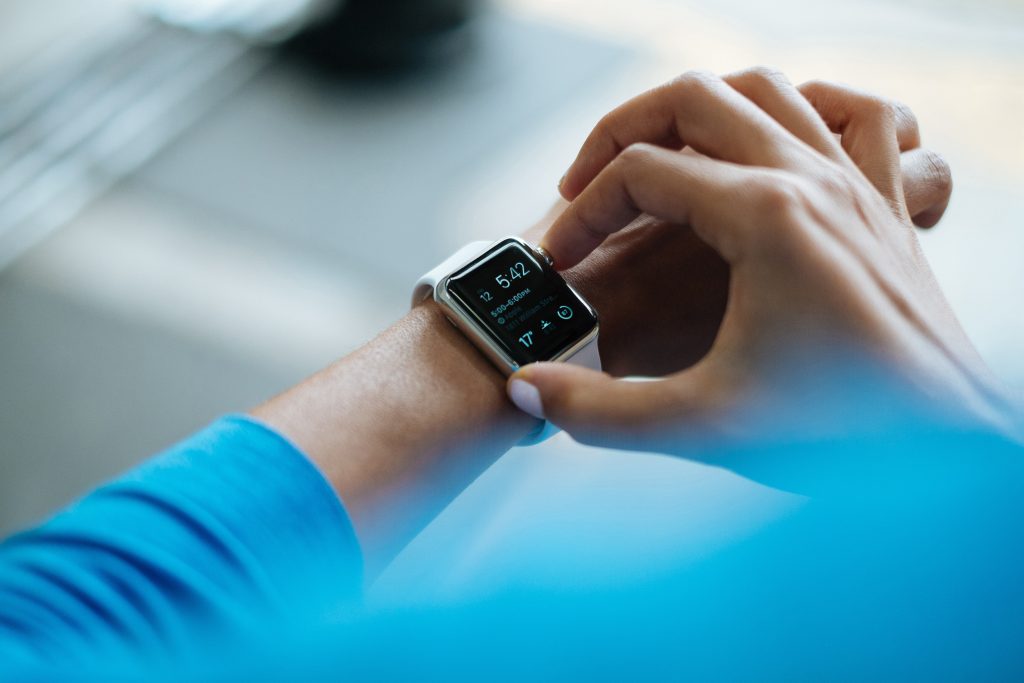


Apple has long been considered a pioneer of technology, transforming the way we communicate, spend money and work.
But one area in which you may not have considered Apple's dominance is health care, an increasingly important space for society.
Today, we have gathered five ways for Apple to change the industry ...
Apple Car is an avenue where health could be revolutionized, rumors and patent leaks confirming Apple's plan to build an autonomous vehicle.
As expected, information on the project, named Titan, has been scarce and conflicting reports suggest that the project has been completely withdrawn.
However, insiders confirmed that the Titan project was doing well, even though the scale of the Apple car project was not known. What we do know, however, is that nearly 1.25 million people die each year in road crashes, averaging 3,287 deaths per day.
An additional amount of Every year, between 20 and 50 million people are injured or disabled as a result of road accidents, demonstrating the danger of driving and opportunities for high-tech companies such as Apple to reinvent the wheel - literally.
The Apple Glasses project has been running for several years and, although we do not know exactly What we can expect from the Cupertino firm at the launch of the project, we know that it uses the technology of augmented reality of Apple and a pair of glasses.
A problem that Apple Glasses could, theoretically, tackle is glaucoma, a disease that damages the optic nerve and worsens over time.
Without treatment, glaucoma can lead to vision loss and is the leading cause of blindness in the world.
It can only be detected by vision tests. Thus, if Apple could do a weekly test in Apple Glasses, it could potentially prevent thousands of consumers to become blind each year, encouraging them to consult their optician.
It's possible that HomeKit will not come to mind when it comes to Apple and healthcare, but Apple's smart home technology could play a role in the future of our home health.
As consumers equip their properties with HomeKit-enabled devices such as cameras, speakers, light bulbs and HomePods, environmental monitoring will become even more efficient, allowing Apple to detect falls. , break-ins and even neurological dysfunctions monitored since dictation via Siri.
The global smart home market is expected to reach $ 53.45 billion by 2022 and if Apple wants to dominate the industry, its vertically integrated ecosystem approach needs to move up a gear, starting with the HomePod.
While Google and Amazon dominate the industry with their Alexa and Google Home devices, Apple is lagging behind and could be left behind.
Introducing a Siri loudspeaker for the home, Consumers will choose to integrate with the Apple ecosystem and take advantage of future innovations in Apple's smart home technology, improving their safety and health. If Apple takes too long to react to price-conscious consumers, its competitors will likely exceed.
Apple Watch is one of the most powerful healthcare devices in the world and continues to improve.
With watchOS 6Apple will introduce new ways to monitor your health, such as cycle monitoring and ambient noise, as well as incorporating a new medication enforcement application to encourage users to take their medications.
But there is still much to do to make the Apple Watch the best tool for monitoring your wrist health.
The rumor has been circulating for several years and it seems that the technology is finally coming: blood glucose monitoring could be introduced in a future Apple Watch to help people with diabetes manage their disease.
And by connecting real-time data to hospitals, EMS and family members, patients will see their quality of life improve and be assured that their condition is being managed.

What is particularly interesting with HealthKit and the iPhone is the data.
Making the iPhone the center of our health makes sense for consumers. Being able to transmit this data to hospitals and medical offices around the world would create a more efficient health system, allowing doctors and Apple to warn users of potential medical problems.
Apple Health Records - which consolidates and stores patients' medical histories - is at the epicenter of the company's plan to reorganize the market.
It already has a penetration of 16% in the United States.
As Apple introduces new integrations, HealthKit will become an even more powerful tool for research and treatment; maybe it will be necessary soon.
Where do you see Apple innovate next? Let us know your thoughts on Twitter and come back soon for more ...

HomeKit.Blog is in no way affiliated with or endorsed by Apple Inc. or Apple related subsidiaries.
All images, videos and logos are the copyright of the respective rights holders, and this website does not claim ownership or copyright of the aforementioned.
All information about products mentioned on this site has been collected in good faith. However, the information relating to them, may not be 100% accurate, as we only rely on the information we are able to gather from the companies themselves or the resellers who stock these products, and therefore cannot be held responsible for any inaccuracies arising from the aforementioned sources, or any subsequent changes that are made that we have not been made aware of.
HomeKit.Blog Is A Participant In The Amazon Services LLC Associates Program, An Affiliate Advertising Program Designed To Provide A Means For Sites To Earn Advertising Fees By Advertising And Linking To Amazon Store (Amazon.com, Or Endless.com, MYHABIT.com, SmallParts.com, Or AmazonWireless.com).
The opinions expressed on this website by our contributors do not necessarily represent the views of the website owners.